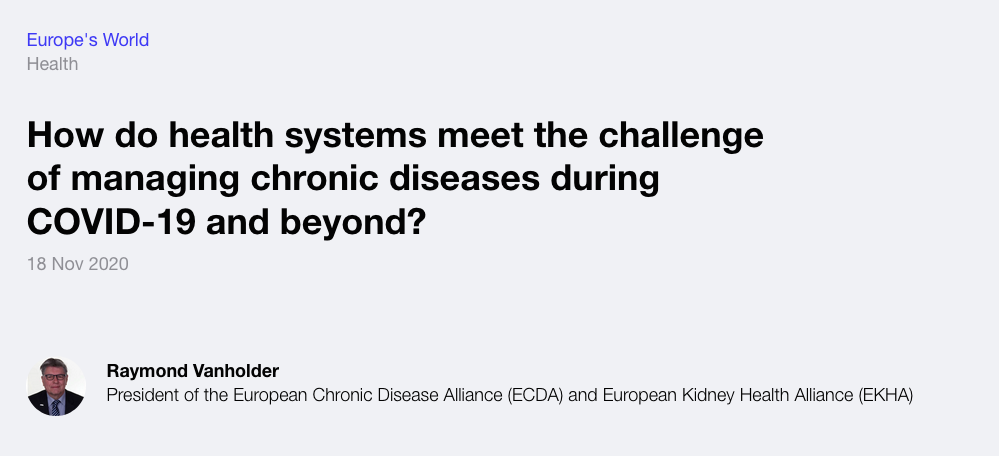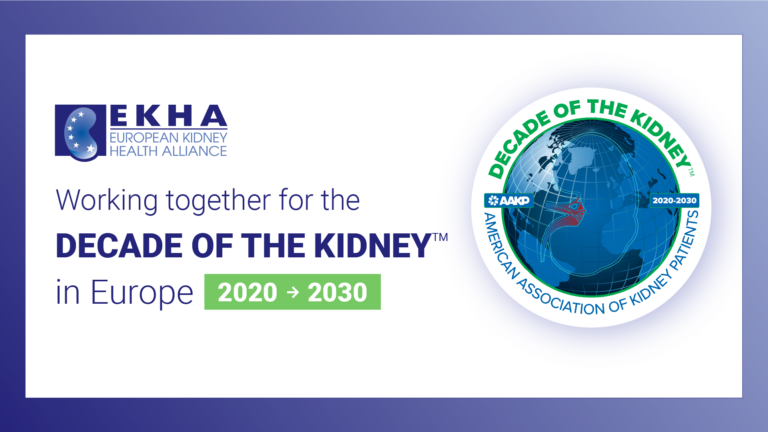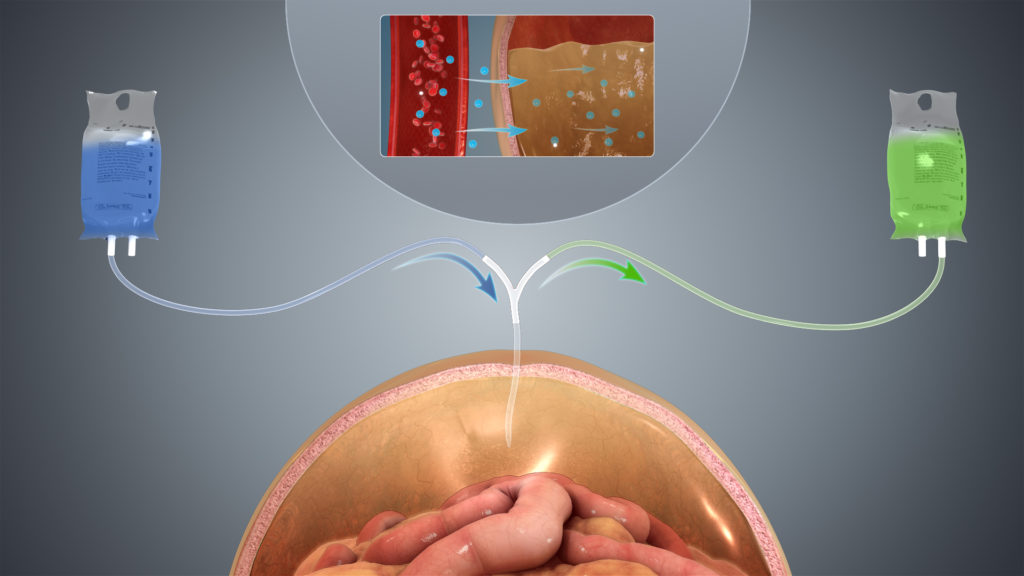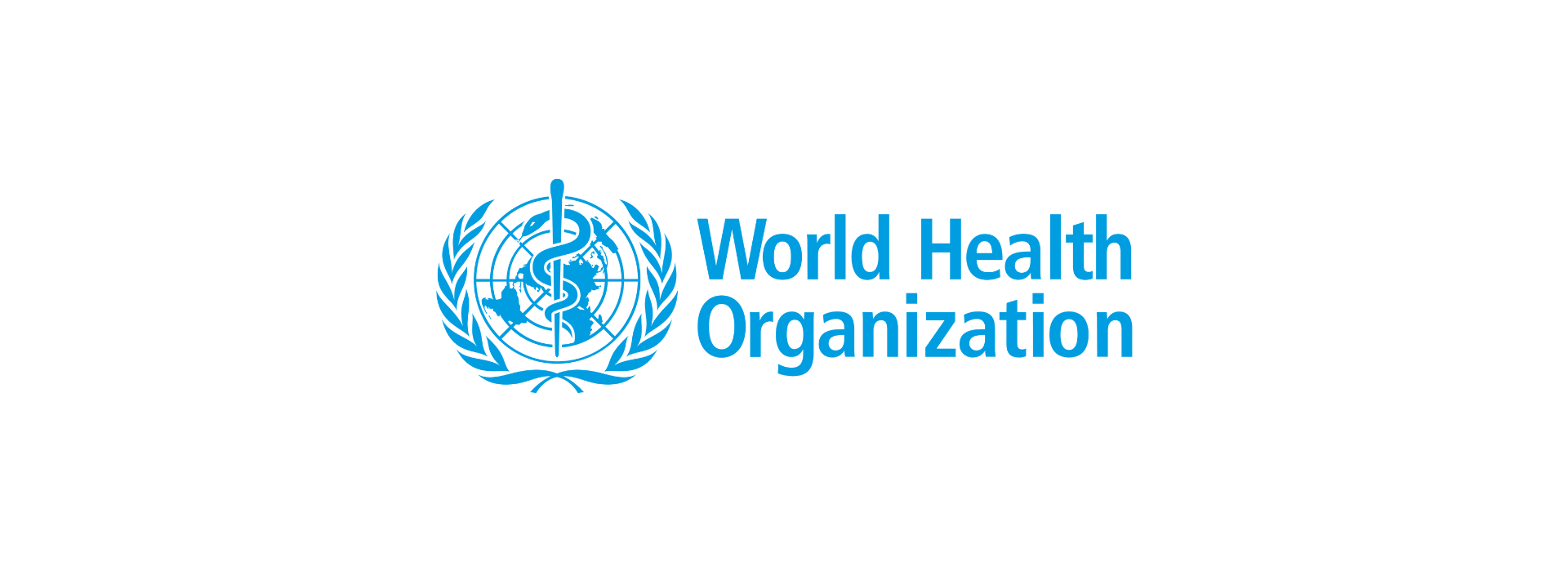EKHA publication: How do health systems meet the challenge of managing chronic diseases during COVID-19 and beyond?
EKHA President, Prof. Raymond Vanholder published an article on ‘Friends of Europe’s’ website which illustrates the need to implement more resilient and sustainable approaches to chronic disease prevention, treatment and care during and in the aftermath of COVID-19, taking the case of Chronic Kidney Disease (CKD) as an example.
The article issues a number of recommendations aimed to address the increasing challenges of chronic diseases in Europe, for instance by creating a pan-European health data system, targeting awareness campaigns to reach vulnerable populations and promoting life-long learning for healthcare professionals. Furthermore, the health crisis has highlighted the need for integrated care approaches, for investment in digital healthcare solutions and for systematic multi-disciplinary collaborations.
It also recalls the heavy toll taken by CKD patients as a result of the COVID-19 pandemic. Not only are CKD patients the most vulnerable population to severe outcomes of COVID-19, but Acute Kidney Injury (AKI) was also a major side-effect in survivors who were hospitalised. Additionally, the pandemic created significant disruptions in the care of CKD patients. In light of these, Prof. Raymond Vanholder reiterates that a strong focus should be put on improving the way treatment and care are delivered to CKD patients, for example by promoting cost-effective therapeutic options such as home-therapies and transplantation. A policy shift in this direction would not only protect CKD patients from infectious threats but would also have a positive societal impact by benefiting European health-economic status.
The article concludes with a call for the EU and governments to invest sustainably in healthcare systems and in chronic disease particularly as a way to better protect patients during upcoming infectious waves and improve health outcomes of the population in the future.
You can access the full article here.











